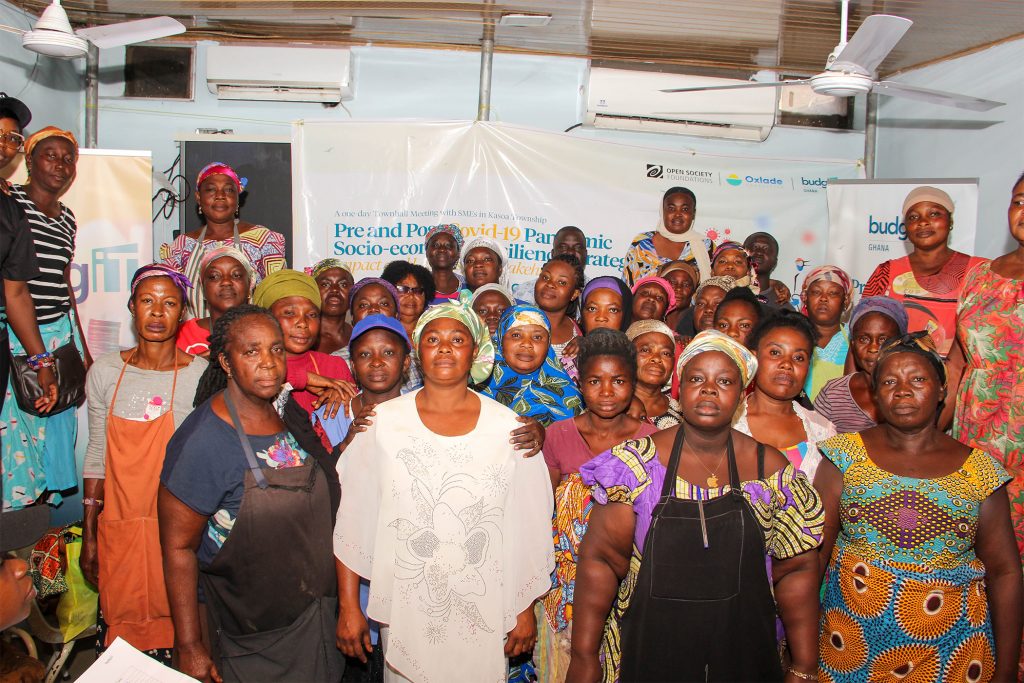Market women in Kasoa lament the lack of government support and the harsh economic challenges in the aftermath of the COVID-19 pandemic.
By the end of 2019, the world had experienced one of the most devastating shocks of a pandemic for which it had not adequately prepared, resulting in the complete shutdown of most economies. The median global GDP fell by 3.9% from 2019 to 2020, according to the International Monetary Fund (IMF). This is the worst economic downturn since the Great Depression. The harsh reality of the pandemic in Africa is the near-collapse of its young and fragile economies, which has hurt Micro, Small, and Medium-Sized Businesses (MSME).

BudgIT Ghana, with support from the Open Society Initiative for West Africa (OSIWA) and Oxlade Consulting, hosted a town hall meeting in the Kasoa Township – Central Region of Ghana, to document the COVID-19 experiences and the impact of the pandemic on women-led businesses in West Africa, as well as students and the disabled.
The BudgIT Ghana team engaged the town hall meeting participants on the topic of “Pre and Post-COVID-19 Pandemic Socio-Economic Resilience Strategies, Impact, and Lessons from Stakeholders.” The event had a great turnout by the market women of Kasoa Market, including their market queens and community opinion leaders who shared their experiences. Most traders recounted their experiences attempting to sell their wares in the marketplaces during the 2020 lockdown; the majority were subjected to harsh treatment by government security agents, particularly soldiers.
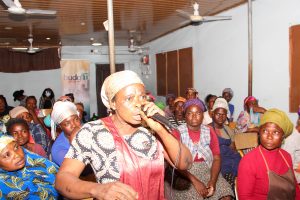
In all accounts, the loss of business capital and inhumane treatment by government security personnel figured prominently. Most women have accessed high-interest loans to survive, hurting their families. The town hall meeting revealed that the women present have at least two and no more than ten dependents. Most of the market women shared that they had to lay off their casual workers at the market to sustain their income. At the same time, some applied for high-interest loans to buffer their capital and drastically reduce expenditures on food and other essentials for survival due to the harsh economic situation in Ghana to sustain their income.
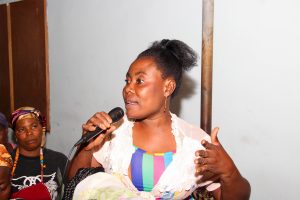
Auntie Sophia, a pepper vendor in one of the poorer communities in Kasoa, stated that life was unbearable because she could not trade during the lockdown. Auntie Sophia told BudgIT Ghana, “There was a lot of suffering during the lockdown due to the COVID-19 pandemic; my family and I suffered because we didn’t have money to feed ourselves; we had to survive on gari.”
Mama Mercy, a cassava vendor, had purchased bags of cassava to sell a day before the announcement of the two-week lockdown period, but they all went bad, resulting in her capital loss.
“All of my cassava went bad because the military and police personnel stationed at the tollbooth during the lockdown forbade us from entering the market. After the lockdown was lifted, we were relocated from the main Kasoa market to a school park, but buyers refused to visit the school, so all of our goods perished,” she lamented.
Madam Gloria Akomea, the leader of the women and a vendor of provisions at Kasoa Old Market, reported that she is the sole provider for a household with more than ten dependents, including a laid-off husband, four children, and five extended family members, including her mother and mother-in-law. As a result, she has no choice but to rely on high-interest loans to supplement her now-insufficient business operating capital to support her family. She added that her family has drastically reduced their protein consumption to survive.
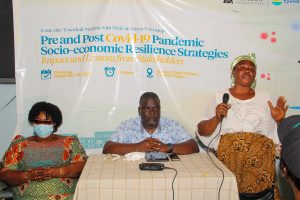
When asked if any of them were recipients of the soft loans disbursed by the government through the Ghana Enterprise Agency (GEA), formerly NBSSI, for micro, small, and medium-sized enterprises during the height of the pandemic, the response was a resounding “NO,” with some claiming they were even defrauded in the application process.
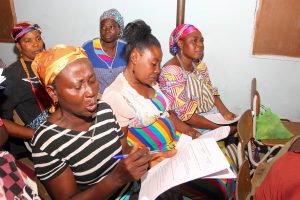
According to a survey conducted by the Ghana Statistical Service, 35.7% of business establishments and 24.3% of household firms reported being closed during Ghana’s partial lockdown. Greater Accra (51.5% of businesses) and the Ashanti region (55.4% of businesses) report the highest levels of business closures during this period. During the partial lockdown, education (65.4%), financial services (47.0%), transport and storage (46.4%), and manufacturing (39.5%) had the highest rates of closures.
According to World Bank data, small and Medium Enterprises (SMEs) play a significant role in most economies, particularly in developing nations. SMEs make up the majority of businesses worldwide and are significant contributors to job creation and economic growth on a global scale. They account for approximately 90% of businesses and over 50% of employment worldwide. Formal SME contributions to national income (GDP) in emerging economies can reach up to 40%. When informal SMEs are included, these numbers are significantly higher.
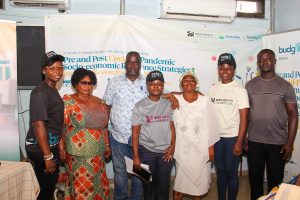
We urge the government to ensure that grants, aid, and other public finances dedicated toward pandemic relief are made open. Individuals and small businesses should access relief or small loan applications on an open portal, and a list of awardees with amounts should be published to discourage fund mismanagement.
